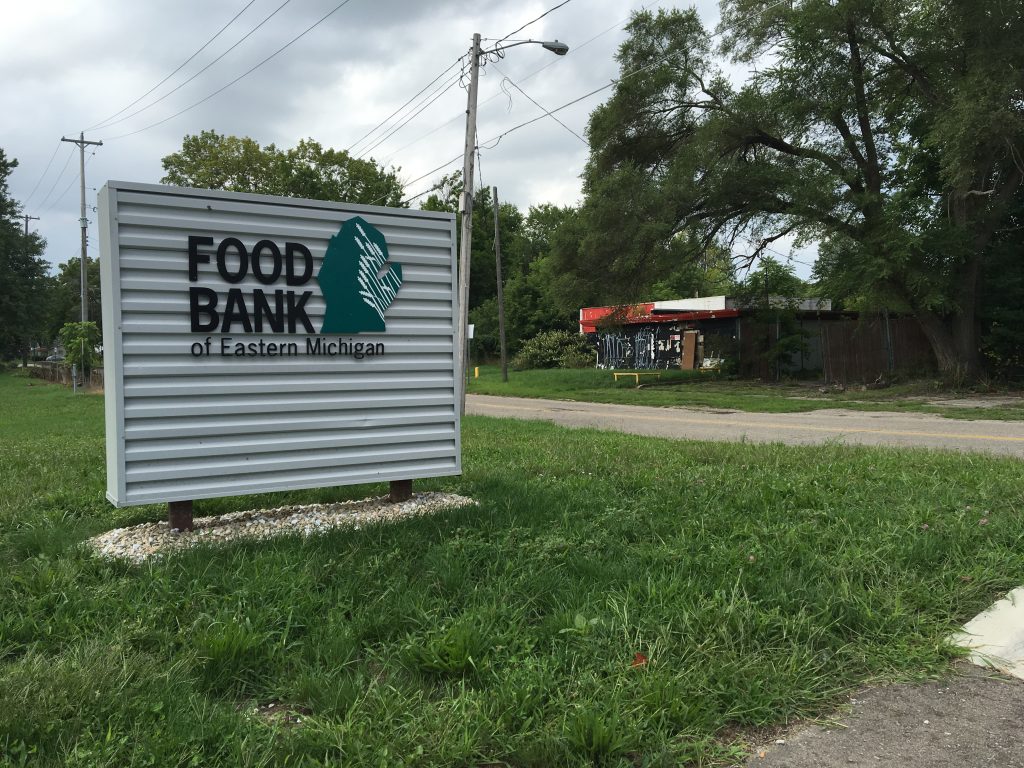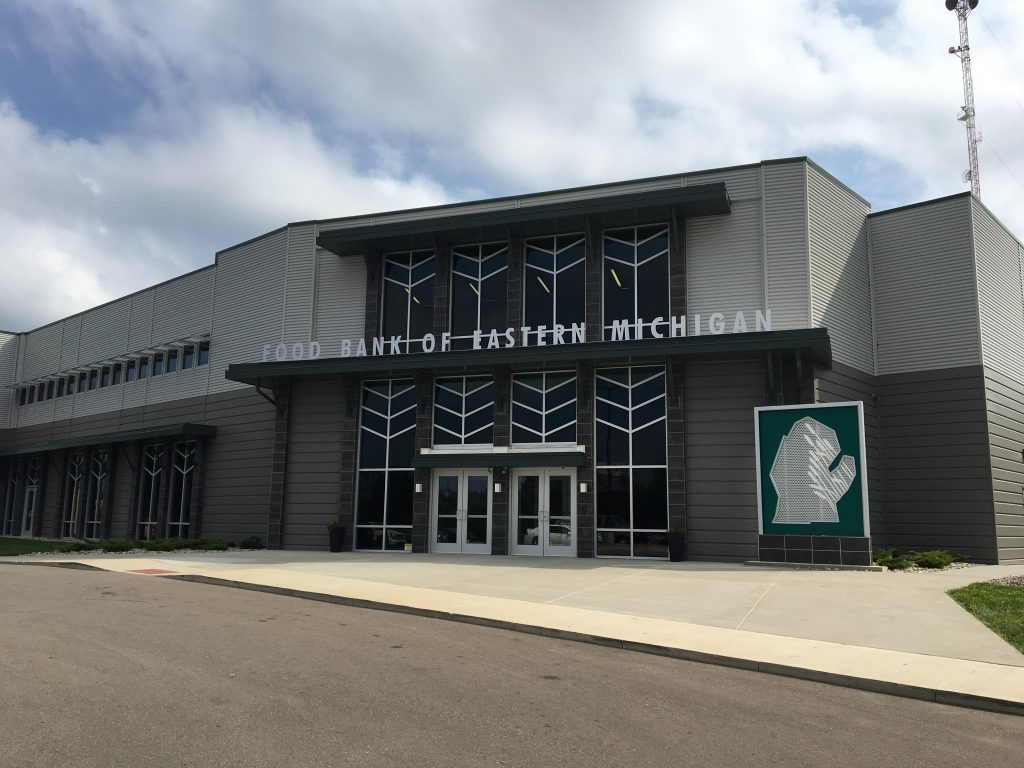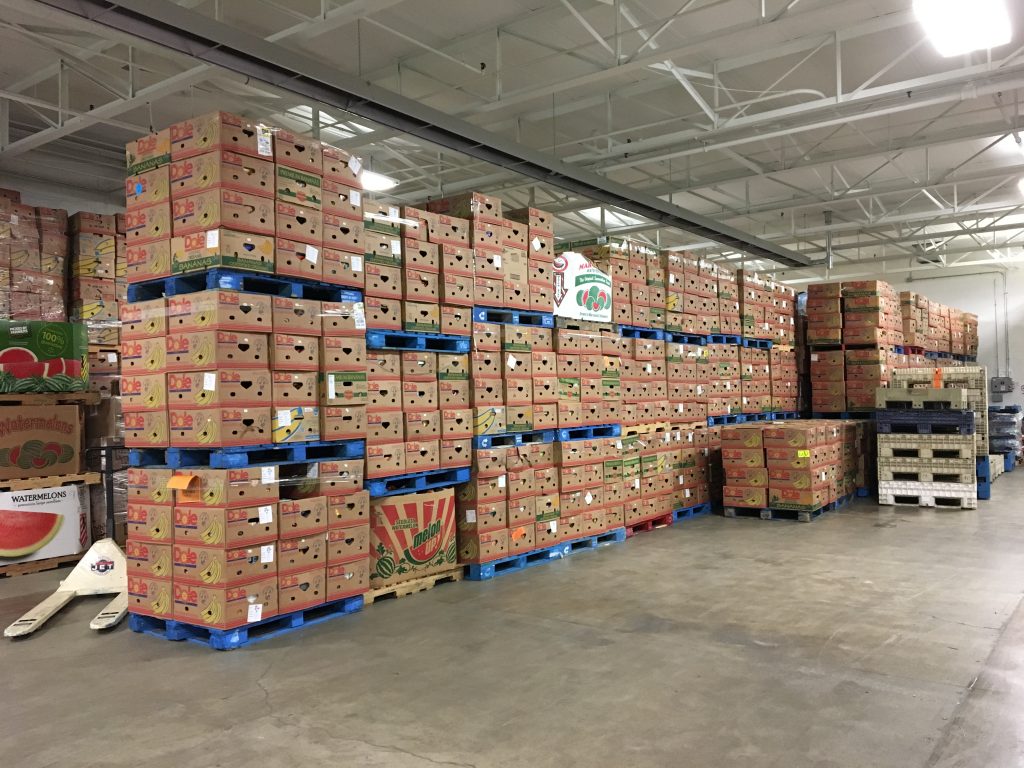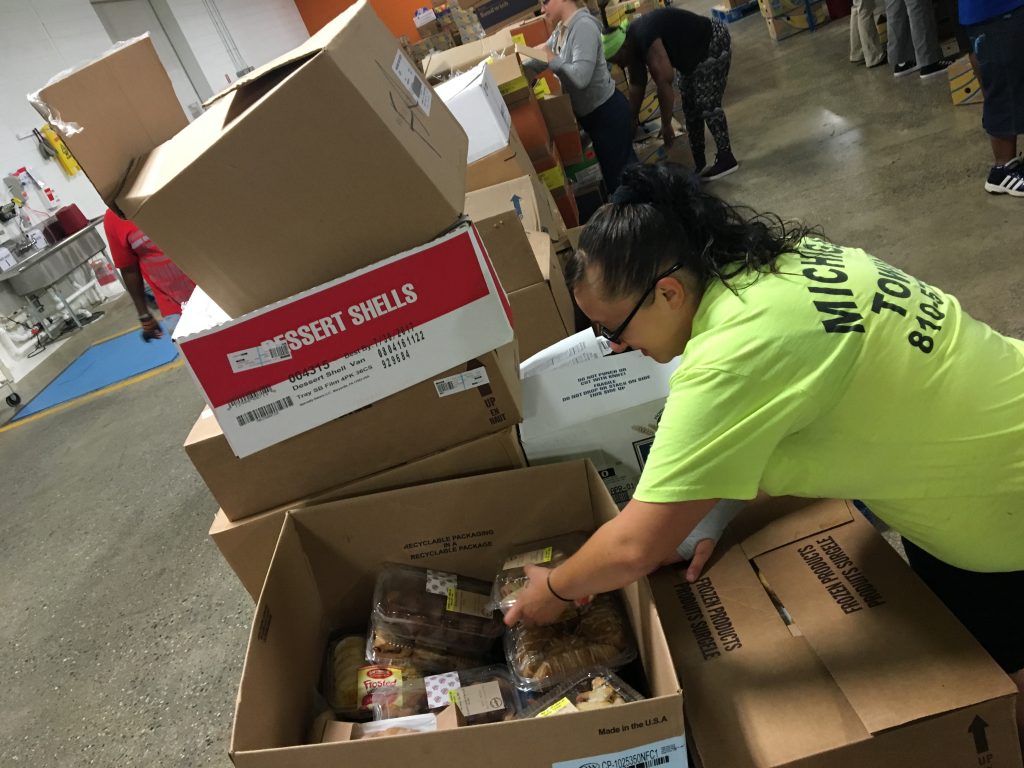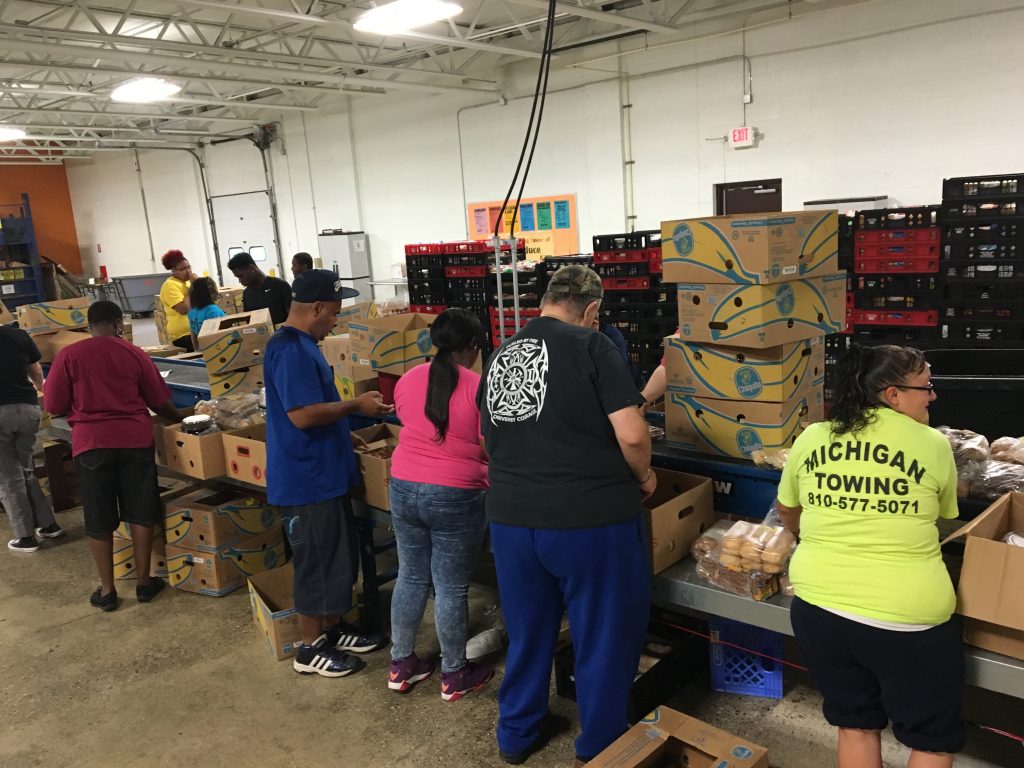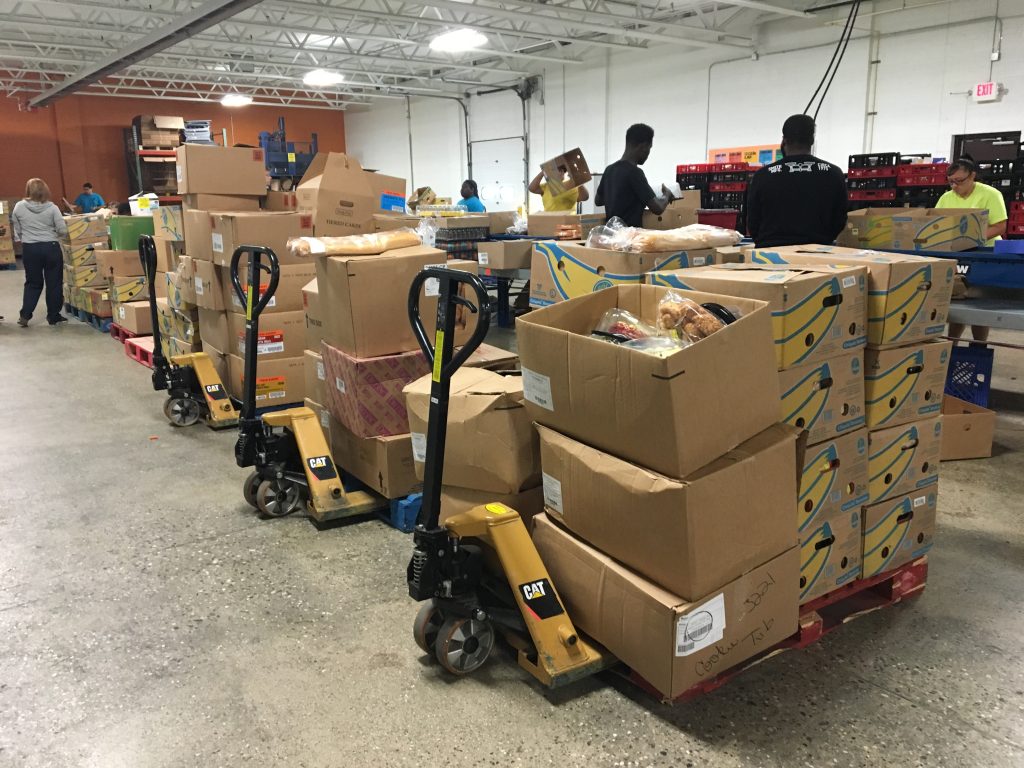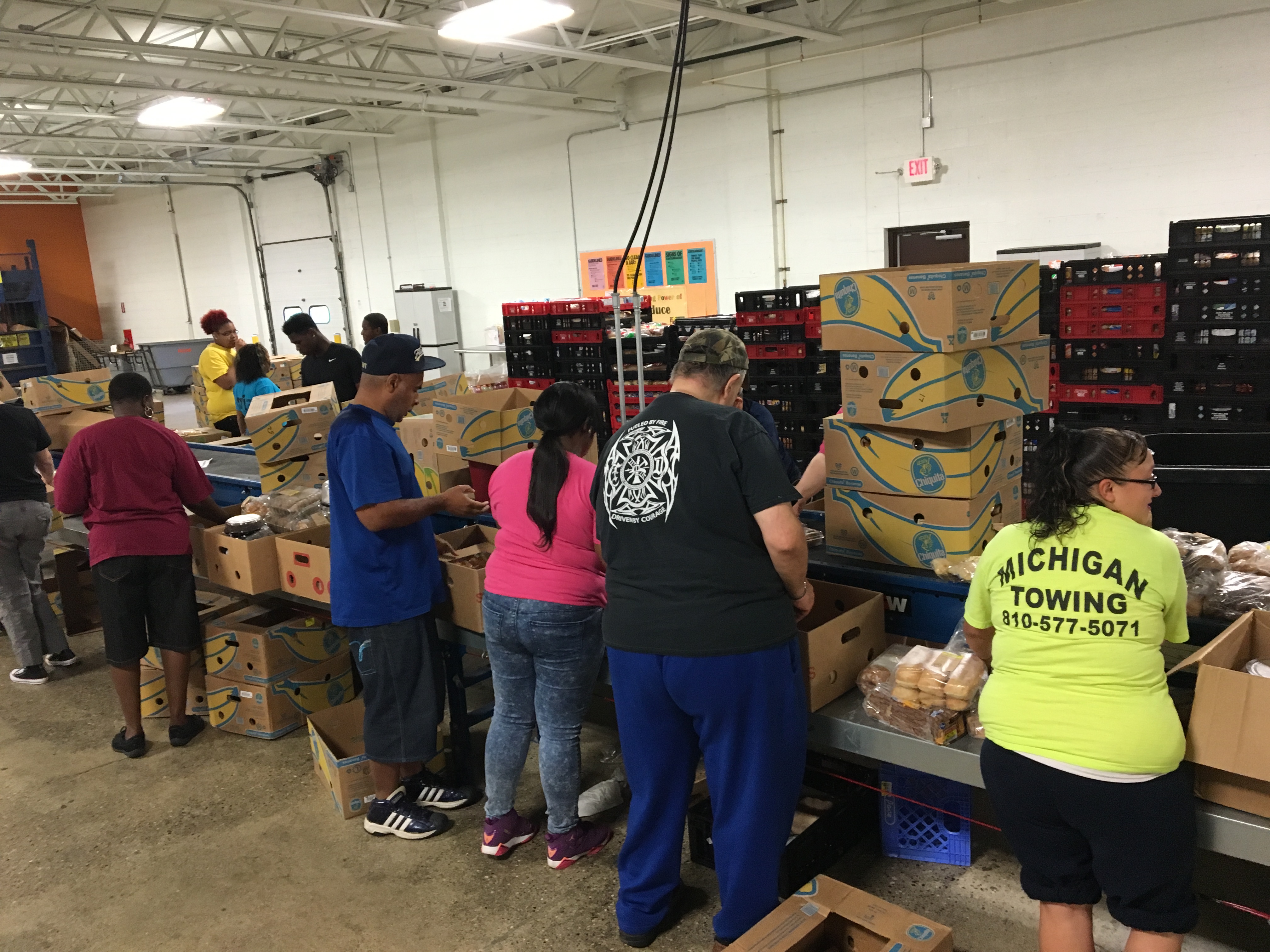
The Great Lakes Bureau is returning to Flint, Michigan to investigate the state of the city, it’s residents and their future since the media spotlight has shifted away from the troubled town. We’re interested in what’s been happening since our production of Beyond the Tap part 1, which premiered on the WORLD channel’s LOCAL, USA series earlier this year. Producer Aaron Martin is spending time volunteering at the Flint Food Bank to learn more about the latest in the wake of criminal and civil charges brought by attorney General Bill Schuette, and whether or not the renewed trust from residents that Schuette hoped for as a result has become a reality. Has life changed for the residents of Flint yet? Has it improved? Do Flint residents feel like their voices are being heard? And do they have clean water yet? Producer Aaron Martin explains how his focus on the work at the Flint food bank will help answer these questions and more:
“The food bank in Flint has arisen as trusted source of much needed fresh food and water, but also as a source of information and health services. It’s become a community hub, full of dedicated and hardworking volunteers who are doing everything they can to help their fellow citizens. Using a dawn-to-dusk structure, we’ll follow members of the food bank’s staff as they try and heal Flint… At the end of the day, the volunteers at the food bank are left trying to answer one question: It may be possible to fix the crisis in Flint, but can the city ever be healed?
Congress still hasn’t appropriated recovery money for Flint, and it’s unknown if that will happen in the new congressional session. Right now funding for Flint is tied to a water resources bill, but it might not make the final version of the bill… The story is still the switch from crisis to recovery… The city has restarted it’s lead service line replacement program after stopping in April (but they’re only going to replace about 250 more pipes), so we’ll see what the outcome of both efforts is.
For me, the key to understanding the crisis in Flint is that lead poisoning is a generational problem, something that the residents will be dealing with for twenty years or more, and that the health crisis isn’t over when clean water starts coming out of the city’s taps. That’s probably the newest thing in this story – that the crisis will be with the city for a very long time…
People are starting to feel like their voice is being heard. Some think that Flint is finally getting the help it’s needed for at least 30 years, but it took a major environmental disaster for that help to arrive…
In the near future, we’ll see if the amount of lead in the water can be reduced to a safe level with the controls that are in place. There’s also the restart of the lead service line replacement program, and the possible extension of the Medicare program in Flint from 5 to 20 years. The effort to understand secondary impacts of the crisis (that’s my term), like legionella and the conclusions reached by the CDC study on rashes are also worth monitoring.
The Federal government says that water in Flint is safe to consume if you use a filter, but when I was in Flint I only saw people drinking bottled water. A lot of money and resources have poured into Flint, and I’m sure we’ll start to see the impact of those efforts in the coming months, but the truth is that the effects of the lead water crisis in Flint will be with its residents for a generation or more, so we’re at the beginning of the beginning of this.”
Stay tuned for our follow up episode on what’s happening in Flint now. In the meantime, check out the entire episode of part one of Beyond the Tap, broadcast via Local, USA on The World Channel here.


